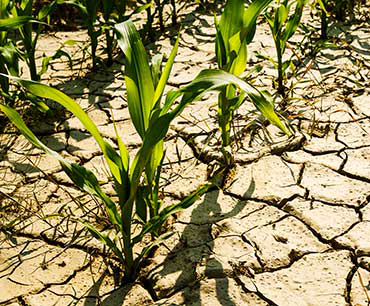Breaking News
Cost of climate change in Africa to hit N50bn yearly by 2050, group warns
He stated: “A 2023 report by Arup and Oxford Economics estimates that the transition to a net zero emissions environment by 2050 will create new industries worth $10.3 trillion to the global economy by that same year. These new economic opportunities range from the growing market demand for electric vehicles, renewable power generation, clean energy equipment, renewable fuels, as well as green finance and activities that would support supply chains across the globe…

Green Growth Africa Sustainability Network (Green Growth Africa) has warned that the annual cost of climate change impact on African countries could hit $50 billion by 2050.
The group observed that while Africa contributes about three percent of the global emissions of greenhouse gasses, the continent finds itself disproportionately vulnerable to the impacts of climate change.
Speaking to journalist at virtual press briefing ahead of the 2023 International Youth Day on Saturday, the Executive Director, Green Growth Africa, Dr. Adedoyin Adeleke said with Africa being the only continent in the world where more than 60 percent of its population is under the age of 25, added that by 2030, nearly half of the world’s youth population will be from Africa.
The 2023 International Youth Day has the theme “Green Skills for Youth: Towards a Sustainable World”.
He called on African countries to aggressively arm its youth with Green Skills to leverage their enthusiasm, resilience, and exploratory spirit, pointing out that “this is the pathway to develop new medium and large green industries in Africa. We must emphasize here that Africa cannot afford to depend on other nations for green technologies”.
He observed that “the high demographic, enthusiasm, resilience, and exploratory spirit of the youth provide an incredible opportunity for concrete sustainable socio-economic development on the continent. However, the possibility to leverage the potential of the youth for transformational change is limited by many complex, and multidimensional challenges on the continent and concrete actions of governments, private sector, multilateral and international organisations including development partners are required to address them”, he stated.
He pointed out that the “continent faces escalating climate-related extreme weather disasters, including floods, extreme heat, erratic rainfall, and rising sea levels, causing untold human suffering and economic disruption.
“For instance, flood incidents have surged ten times since the 1960s, leading to more than 20,000 deaths; severe droughts have claimed more than 500,000 lives, and more than $70 billion has been lost. Worsened climate challenges amplify food insecurity, poor health, conflict, internal displacement, and the COVID-19 fallout in Africa. These altogether are deepening extreme poverty and other socioeconomic challenges that the continent already faces”.
Despite its negative impact, Dr. Adeleke disclosed that climate change also presents opportunities for Africa nations to expand their energy access and grow their economy.
“The climate crisis does not only pose challenges: the efforts to address climate change also offer even more opportunities for Africa to leapfrog our development deficit but only if we will act, and act fast! Indeed, there have been calls for nations around the world including African countries to reduce emissions.
“But what Africa needs are not just climate actions, but climate actions that also advance social and economic development indicators. Most of the conventional approaches and strategies being advanced would not be the best for Africa given the need to also simultaneously catalyse social and economic development while lowering carbon emissions”, he explained.
He stated: “A 2023 report by Arup and Oxford Economics estimates that the transition to a net zero emissions environment by 2050 will create new industries worth $10.3 trillion to the global economy by that same year. These new economic opportunities range from the growing market demand for electric vehicles, renewable power generation, clean energy equipment, renewable fuels, as well as green finance and activities that would support supply chains across the globe.
“Africa has much to gain by tapping into this green transition: the current overreliance of African countries like Nigeria on crude oil may spell economic doom in the nearer future as the world is shifting away from fossil fuel use.
“On the other hand, we are well-positioned to lead the global green transition by leveraging our huge resources: from our rich mineral reserves of Lithium used to make batteries that power electric vehicles, to our abundant human resources embodied in our youth that can supply quality labour not just to the continent but to other regions across the globe”.










